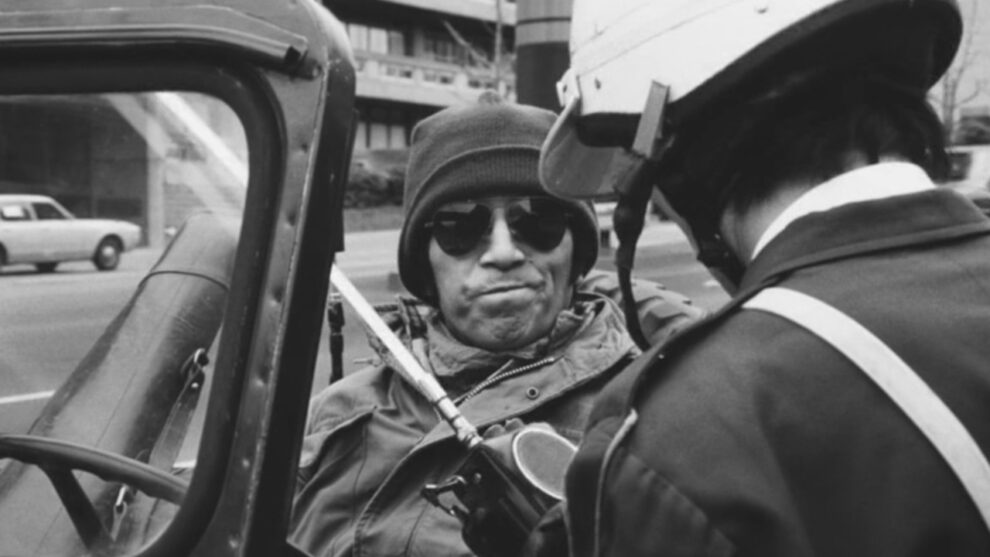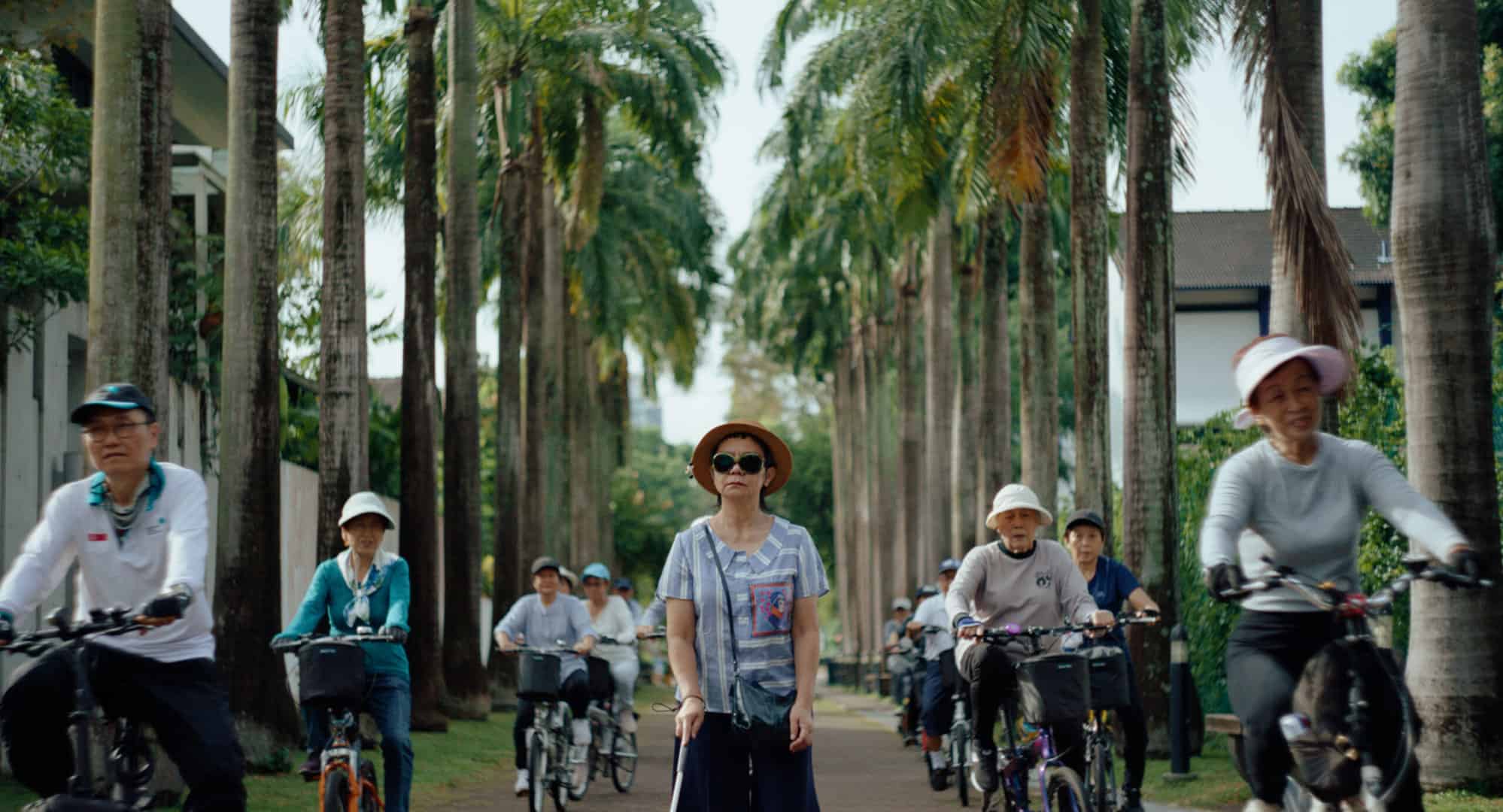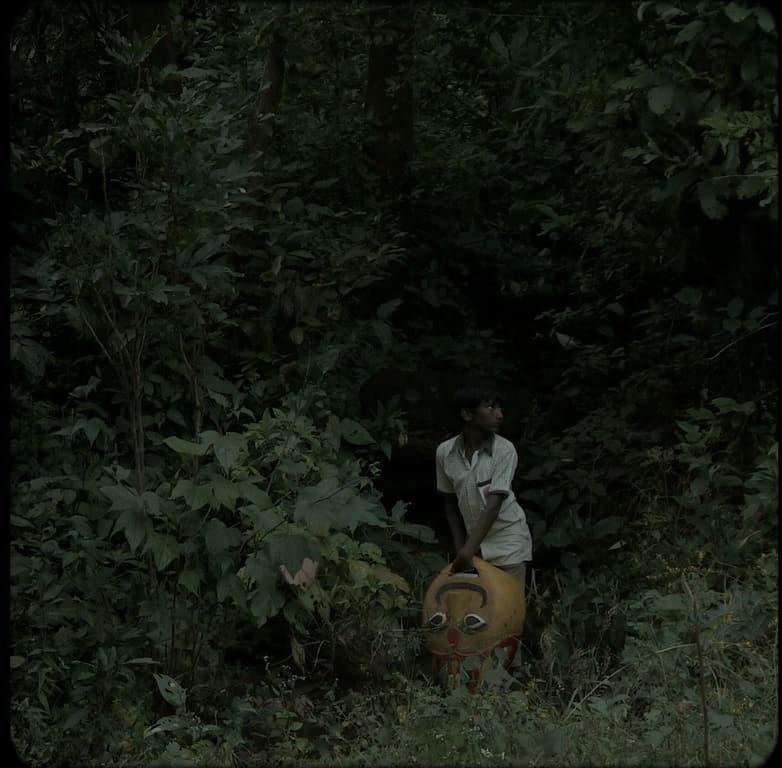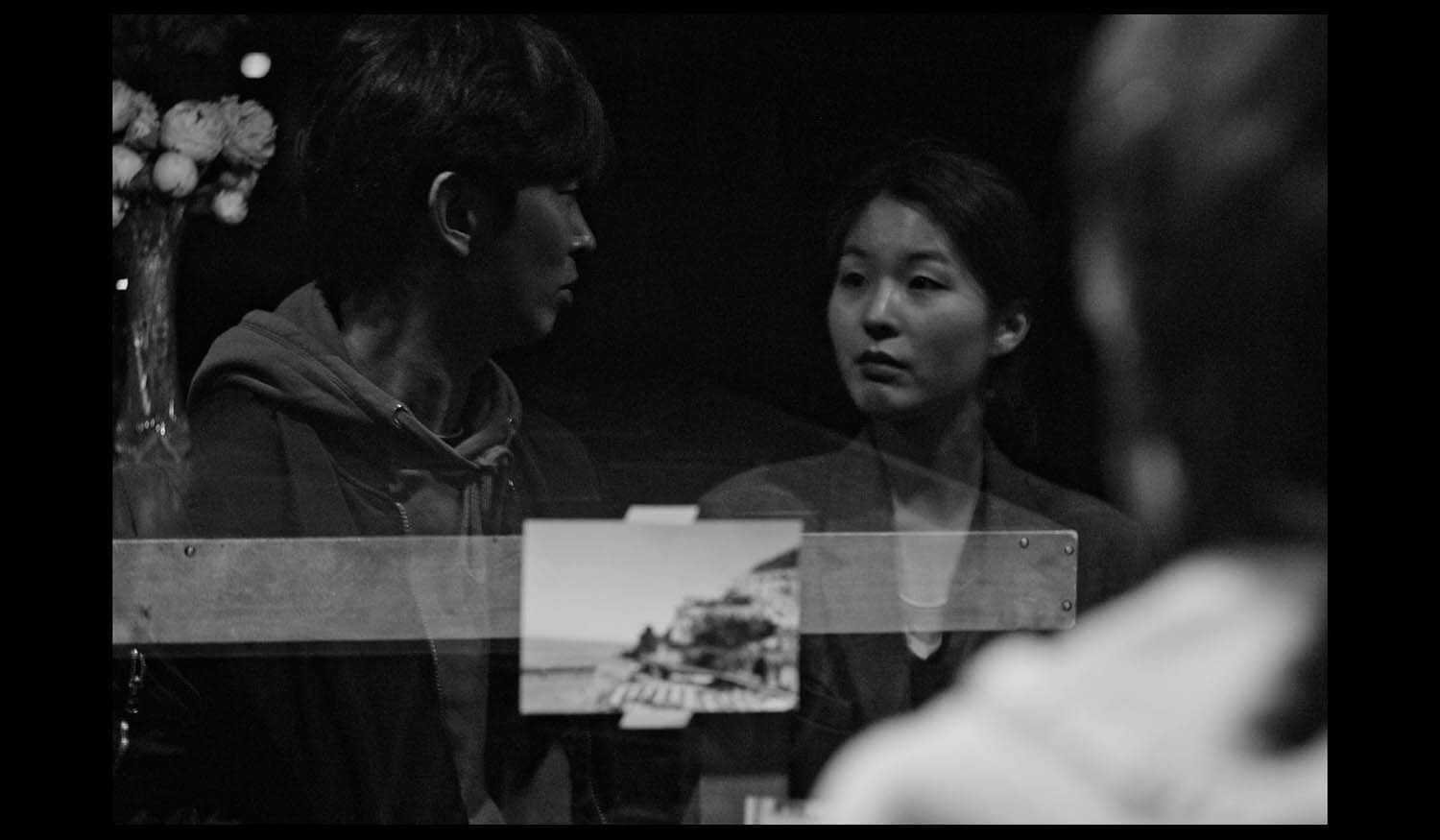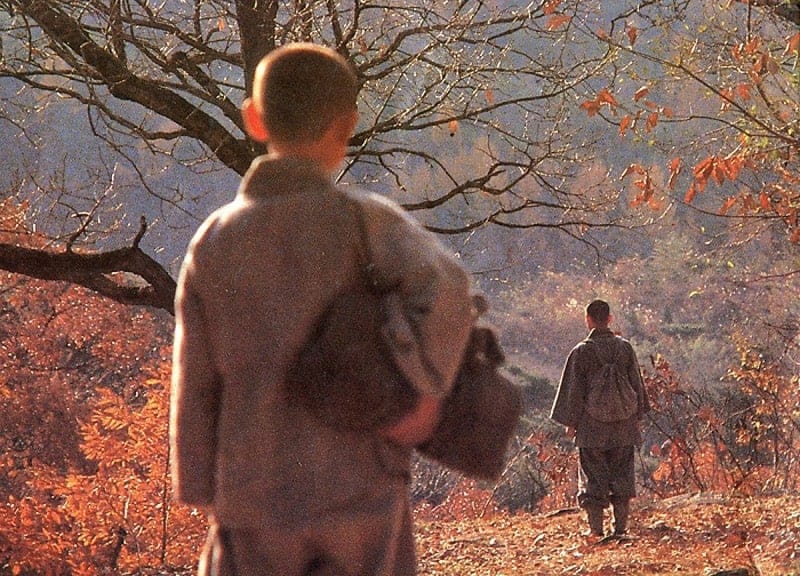“The Love and Adventures of Kuroki Taro” is a weird film, even by ATG standards. It begins by showing Kuroki Taro and two other stuntmen in their line of work, even stating that “in this film, the stuntman is the star”. However, apart from these introductory scenes, the movie does not show any more behind the scenes footage in a film-about-film fashion, instead focusing on three different stories involving the titular character, and a side one, all of which are narrated by one of the initial characters, Juichi Ito. This last one is a rather personal one for Morisaki since he drew extensively from the war diary of his older brother Minato, who killed himself by harakiri the day after Japan's surrender.
The first story involves Kuroki playing games with the police, essentially making them chase him by acting as the potential instigator of terrorist attacks against the Russian and US embassy. Running through the streets with his Jeep, he is never actually caught, since the policemen he “harasses” are usually on foot.
The second story has Taro dealing with the daughter of a friend who has died of alcohol poisoning. She and her husband are deaf-mute and are suffering due to the tenant who lives upstairs of their rundown apartment, which was also a barbershop. The lady upstairs keeps dozens of cats and never cleans, which has resulted in the smell and the bugs chasing away their customers. Taro tries to help them by talking to the woman, who reveals that she was a teacher who became as she is after being raped. His way of helping her is as extreme as it comes but a kind of romance eventually starts to bloom between them. When his wife learns of what has happened, despite the efforts of Juichi, decides to leave Taro, along with their daughter.
Check also this interview
The last story involves a high school girl involved with another of the people appearing in the beginning of the movie, who has decided to abandon her family, after being repeatedly beaten by her father, and school, after being severely bullied, and become a prostitute, instigated by a young Yakuza. Taro tells her to cut off one finger to prove she is tough enough for the particular life, but she fails. He takes her back, but the yakuza are not so easy to deal with, with his actions having dire consequences for him and Juichi.
The last arc involves Juichi's father, who suddenly reappears in his life, but in a rather bad mental state, suffering from trauma from the war, being an alcoholic, and in general, barely standing living his life.
The Love and Adventures of Kuroki Taro (1977) [Trailer] from Art Theatre Guild on Vimeo.
Azuma Morisaki directs a film with an intensely episodic approach, which is highlighted by both the aforementioned arc and the involvement of a plethora of characters, which also include the owner of a gag toys shop. Evidently, the fact that the two main protagonists, Taro and Juichi are in the movie industry, plays very little role in the movie, which moves into completely different paths than what its intro suggested. As such, it seems that the story (also by Morisaki) is based on a series of people and events that he experienced at some point in his life, as the father arc suggests, although not even that is a certainty. The episodes do not have much connection with each other, and their only common ground is the protagonist and the acerbic humor Morisaki implements throughout the movie, which occasionally borders on being blasphemous.
As such, and in terms of narrative, the movie does not thrive in particular, appearing more as an abstract omnibus, a collage of different ideas, that perhaps are not exactly supposed to become parts of the same movie. One could say that the director comments on the different kinds of trauma people face, with the consequences of rape, bad parenting, the yakuza and the consequences of war being highlighted, although even this is actually far-fetched. Also of note is that, despite the fact that two stories revolve around sex, there are actually no erotic scenes in the movie, in a rather unusual approach for an ATG movie.
This, however, does not mean that “Kuroki Taro” is without merits. For starters, the acting is on a very high level. The late Kunie Tanaka is exceptional throughout, with his charisma filling the screen every time he appears on it, and him drawing intense sympathy for a character that is ambiguous to say the least. Shohei Hino as Juichi is also great, with his baritone voice that narrates the movie being quite captivating to hear and his intense behavior throughout the movie being a great accompaniment to the titular character. Also of note are the guest appearances here, which include Akaji Maro, Rentaro Mikuni, Kihachi Okamoto and Miki Sugimoto, cementing the overall great cast here.
The black-and-white cinematography and the trademark 4:3 ratio work exceptionally throughout the movie, with the scenes inside the cramped apartments, as the one of the cat lady, and the one where the whole of Taro's family are sitting in the same room, being the ones that stand out. Riichi Fuke and Tomoyo Oshima's editing results in a relatively fast pace that suits the episodic style of narrative here, while it also adds to the entertainment the movie offers.
“The Love and Adventures of Kuroki Taro” is an interesting title, with a number of rather appealing traits. As a whole, however, it does not make that much sense, in probably one of lesser ATG films.


